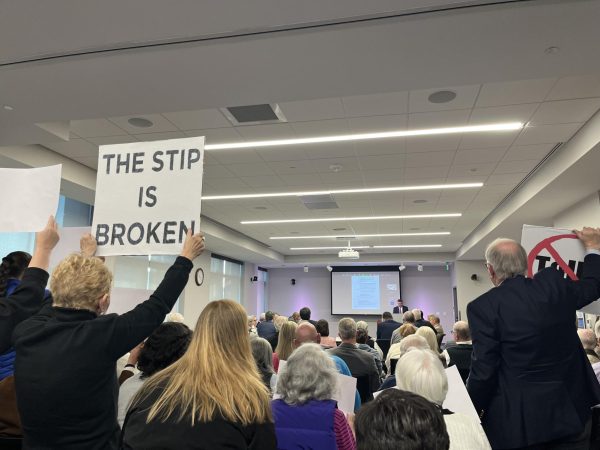Trump team’s plan to privatize public broadcasting
January 27, 2017
As Trump moves into his first week as President of the United States, his transition team is looking for ways to reduce spending. Although President Trump did not directly campaign against public radio and television outlets, his relationship and stance with the media has been on the rocks throughout.
One suggested way of reducing federal spending is by privatizing public broadcasting networks, such as the National Public Radio and the Public Broadcasting Service. However, Trump and his transition team are not the first to suggest the defunding of these programs.
For decades, Republicans have made efforts to end public funding to these television networks, claiming that they promote a liberal bias. Through these pushes by Republican lawmakers, Congress, at times, has reduced funding but never ceased the programs altogether.
Additionally, President Trump is not the first president to push privatization. In 1969, President Nixon became the first Commander-in-Chief to go after government-funded media outlets, according to an article by Michael Calderone in the Huffington Post. Later, Nixon’s efforts were defeated by Fred Rogers, whose show “Mr. Roger’s Neighborhood,” aired on PBS.
Back in 2011, the House ended up passing a bill that targeted NPR’s federal funding. However, due to the strong opposition from the Obama administration as well as the Senate, the bill did not pass.
Because of the Republican controlled White House and both chambers of Congress, the proposed bill currently has a much better chance of being passed. By privatizing the Corporation for Public Broadcasting, the federal funding and investments in public radio and television would be cut off.
Much of what is being proposed has a lot to do with budget recommendations made by two conservative groups. Both mock budgets for 2017, the Heritage Foundation’s “Blueprint for a Balanced Budget” and the Republican Study Committee’s “A Blueprint for Balance” called for eliminating the CPB in order to save $445 million during the fiscal year, according to Mathew Ingram of Fortune Magazine.
In response to the rumors circulating Washington, according to Calderone, the Corporation for Public Broadcasting- a private, nonprofit corporation created by Congress in the Public Broadcasting Act of 1967– stated that these efforts “have been soundly rejected on a bipartisan basis, and we look forward to working with the new Administration and the new Congress in the continued pursuit of our public service missions of education, public safety and civic leadership, which the American people overwhelmingly support.”
Republicans further argue that “a free society should not have government-supported media outlets, especially ones that so often convey political news and opinion.”
Additionally, Republicans have expressed that regardless of the public media programs, government funding should be reduced at all costs to save as much money as possible. As of last year, the overall budget for CPB made up about 0.01 percent of the federal budget.
Those against this proposed budget cut have argued that the more rural states who are in favor of privatization are going to be the ones that end up hurting the most. For example, PBS services account for almost 50 percent of station budgets in rural states such as Alaska.
However, even if federal funding is completely cut for public broadcasting stations, PBS executive Paula Kerger explains that although she is not happy that 15 percent of the overall budget could be cut, “taxpayers who support public broadcasting mostly do so through donations, not taxes,” which would most likely keep them afloat.













